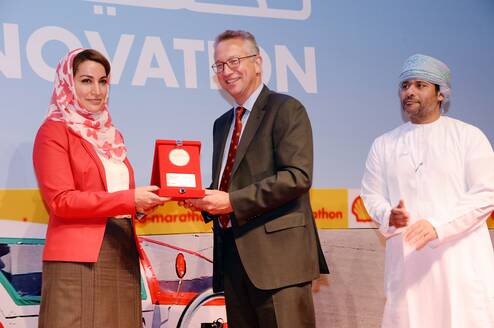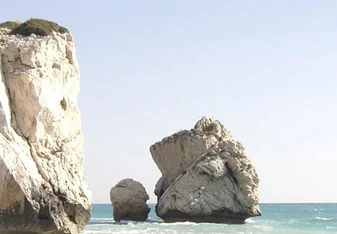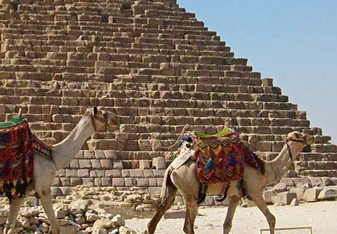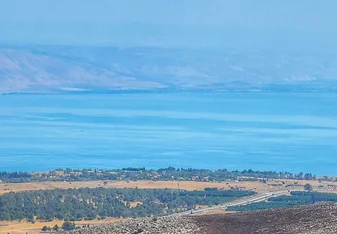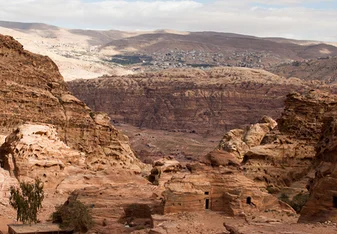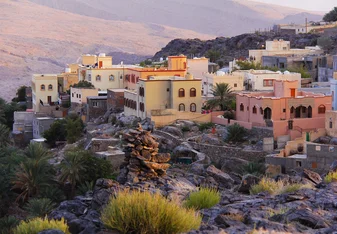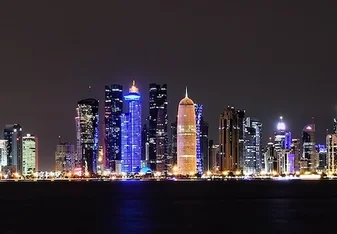Internships in the Middle East
Internships in the Middle East
Pagination
About
The Middle East/North Africa (MENA) area is a large, diverse, and vibrant region, spanning from Morocco at the western edge of North Africa up through the Arabian Peninsula to Iran in the east and Turkey to the north. Though many countries in the Middle East/North Africa region experienced political uprisings during the recent Arab Spring, the region as a whole remains an excellent place to intern or study.
Top Industries
- NGO/International Development: By far the most prevalent type of internship you’re likely to find in the Middle East/North Africa region as a whole is with NGOs and international development organizations. Particularly in light of the recent Arab Spring, NGO activity in the region has increased, making the international development field a particularly vibrant one for current internship seekers. International Development/NGO internships can have a variety of focuses, from politics and freedom of the press to education to human rights.
- Tourism: In many countries in the MENA region, tourism is a major part of the economy. Many countries are also trying to improve the sustainability of their tourism operations, and many private NGOs are also working on this issue, making it another excellent area in which to pursue an internship.
- Education: Several NGOs work on issues of education, but there are also a number of public and private schools that look for native English speakers as teachers and tutors. These assignments tend to be longer-term (a full academic year, rather than just a summer or semester).
- Agriculture: Agriculture is an area of critical importance in a water-starved region. In addition to NGOs that work on agricultural productivity, there are a number of emerging organic farms that look to interns for temporary help.
- Energy: The Middle East is a center of energy production. Oil is the primary industry, but solar energy is also emerging. Your best bet in the oil industry is to find a foreign organization with an office in the Middle East. For solar energy projects, NGOs are doing the most work.
Popular Destinations
Because the MENA region is so large and culturally diverse, it’s best to look at it along its separate cultural and linguistic lines: Francophone North Africa (the Maghreb), Egypt, Jordan, and the Arabian Peninsula, Israel and the Palestinian territories, Turkey, and Iran.
Francophone North Africa: consists of Morocco, Algeria, Tunisia, and Libya. Morocco is easily the most tourist-friendly and accessible of these countries to foreigners, and you’re likely to be able to find internships in community development and tourism fairly easily, as well as in environmental conservation. You may even be able to find a film internship in the “Moroccan Hollywood” area of Ouarzazate. You’re much less likely to find internship opportunities in Algeria, Tunisia, and Libya, but some NGOs do work there, and there’s a chance that you’d be able to find internships having to do with democracy building and/or freedom of the press. To intern in any of these countries, you’ll need at least a good conversational level of French, if you don’t speak Arabic.
Egypt and Jordan: both have vibrant tourism industries, making them excellent choices if you’re interested in a tourism-related internship. There are also a number of international NGOs working in Cairo and Amman, with numerous areas of focus. Because of the tourism industry in both countries, many people speak English but you’ll still want at least a basic level of Arabic to work there.
The Arabian Peninsula: as a whole is more difficult — it would be highly unusual to find an internship in Saudi Arabia, Yemen, or Oman, though you may be able to find something with an American or European company that has an office abroad.
Israel: has a number of internship opportunities in a variety of fields. A more limited range of internships is available in the Palestinian Territories, generally focused on peacebuilding and conflict resolution.
Turkey: similarly has internship opportunities in a variety of fields, including NGOs and tourism, as well as teaching English. Some energy companies also have offices here.
Iran: is generally off-limits to Americans, but there are some exceptions for academic internships in Iran, generally with an international development focus.
Planning Your Trip
Research
When planning your internship in the Middle East, it’s important to research your host organization(s) thoroughly. Are they internationally operated, or are they local organizations? Have they hosted interns from abroad in the past? Ask your host organization about housing and transportation, and see if they’re able to help you out with any visa issues as well.
Determine the level of local language you’ll need to be able to work effectively, and make sure you’ve attained that level prior to your trip. In addition, because of the recent history of unrest in the region, it’s very important to register with your country’s embassy so that you’ll receive safety alerts and so that you’ll be on the evacuation list if the worst should happen and you need to get out fast. Similarly, comprehensive travel insurance is also a must.
Cost of Living
In general, the cost of living is lower in the MENA region than it is in the US or Western Europe, though it varies country by country. That said, the prices you’ll pay as a foreigner are generally higher than the prices you would pay as a local. Fruits and vegetables, for example, will cost a lot less if you can bargain for them in the local language at the local market than they will if you buy them at the grocery store. Anything you buy from a foreign chain will cost at least as much, if not more, than what it would cost at home (your $5 fancy latte drink is a prime example of this).
If you drink alcohol, expect it to be quite expensive, as it’s generally considered to be a foreign vice and is priced accordingly. If you need to make some extra cash, the easiest way to do this is to offer your services as an English tutor. Post notices at local schools and network with your local friends. In particular, if you write well, you can often find jobs writing or editing for organizations that need a native level of written English for their newsletters.
Work Culture
- Etiquette: Workplace etiquette can vary quite a bit depending on what type of organization you’re working with. Any internship that takes place in an office will err on the side of greater formality in terms of both behavior and dress, whereas most internships in the field will allow for more casual manners and dress. One thing that is critically important in working in the Middle East is to wear clothing that covers your body; a good rule of thumb is that everything from your shoulders to your knees should be completely covered in public. Take your clothing cues from the people around you. Lightweight, breathable fabrics are definitely your friend. In much of the Middle East, it’s customary to individually greet each person you’re working with with a handshake when you first arrive, as a sign of friendship and respect.
- Language: Several languages are spoken in the MENA region, including Arabic, Farsi, and Turkish, as well as French in the Maghreb. Spoken Arabic varies greatly between countries, so the Arabic that is perfectly functional in Jordan will be of quite limited usefulness in Morocco. You may be lucky enough to find an English or French-language based program for which Arabic is a bonus, but in general you’ll want to have at least a basic proficiency in the local language before setting out.
- Networking: In general, people in the Middle East are fairly friendly. Because the NGO world is pretty small, everyone tends to know everyone else, making it fairly easy to get introductions to people you’d like to meet.


